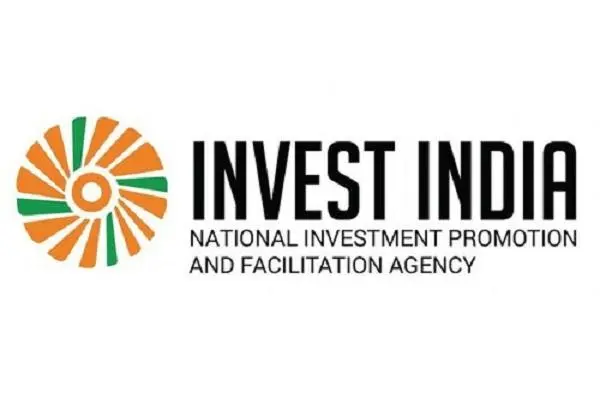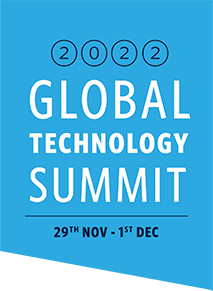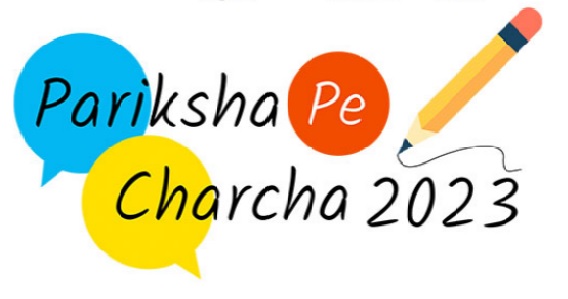Namastey!
I thank all of you for this warm welcome. I am very happy to visit Korea and to meet all of you today. This is my second visit to Korea, and my second meeting with our community here.
The bedrock of the relationship between India and Korea is formed by people to people contacts and business contacts. It is you, the vibrant Indian community in Korea, who are that bedrock of our interaction.
In this land of homogeneity, a land with one race and one language, Indians have made a name and a place for themselves. This intimacy, this connection is not new. The legendary princess Suriratna journeyed all the way from India to this land to marry the King of Gaya way back in the 1st century BC and from that union came millions of Gimhae Kims and Incheon Huhs. Indian blood therefore runs deep in Korean society.
The connections between India and Korea have also been fostered by Buddhism and the curiosity that our people have long had about each other. Hyecho, a Korean Buddhist monk, who journeyed to India in the 8th century AD wrote the Pilgrimage to the Five Kingdoms of India. In his words:
“Roads help humans dream of hope
And bring life to exchange and communication
The history of human beings was created on roads
A road is a messenger of harmony
Between history and culture and between neighbours”
His thinking remains relevant even today. There are many of you who have come here in more recent times and are contributing in your own way to Korea’s development. Indians are regarded very highly for their mental faculties and therefore are making a mark in research and innovation in Korea and back at Korean companies' R&D facilities in India.
Indian culture is getting increasingly popular in Korea. Indian restaurants have started to find their space. Indian films like Taare Zameen Pe, 3 Idiots and Black have left a deep impression about Indian entertainment industry and exposed facets of Indian culture. Indian yoga is in every corner and the International Day of Yoga is celebrated with gusto with over two thousand people participating with enthusiasm in Seoul, Busan and other cities. Korea has embraced Indian games like Kabaddi, bringing its typical determination and drive to emerge as silver medalists in the Asian Games 2018! I hope you will make the most of these connections to expand your reach and cement your place in Korea. And I am glad that you have kept your cultural traditions alive in this country. I have been told that you all celebrate Holi, Diwali, Baisakhi and other Indian festivals with full enthusiasm.
Friends.
The stature of India is increasing the world over. For this, we have not only the efforts of the Indian leadership and resident Indians to thank but also the untiring efforts of our diaspora. There are today over 30 million overseas Indians and they have earned a reputation for hard work, discipline and law abiding and peaceful habits. I am told that in Korea too, Indian professionals are working in diverse sectors like IT, shipping, automobiles etc. Indian academics, researchers and post-doctoral students are working or studying in leading Korean universities. The size of our community has been growing steadily and now numbers over 12,000 – this is a sign of the growing closeness of our countries and the growing respect commanded by Indians the world over.
This is a special year for our nation. This is the year when we celebrate the 150th birth anniversary of our beloved Bapu. This is an opportunity for us to remember his teachings and his philosophy and his life and seek to draw inspiration from these. His message remains relevant in the world we live in today, a world which no doubt faces different challenges but which can be addressed by adherence to his philosophy. As a karyanjali to Bapu, we will be planting 150 trees at a Seoul garden later today. Each one you should, as much as you can in your daily lives, lead simple, sustainable lives that keep you in tune with your environment, in tribute to Bapu.
Friends,
Our relations with Korea are strong and growing. We are not restrained by any historical baggage. We have no disputes or differences. Rather, we have shared cultural and historical connections, we espouse the same principles of democracy, secularism and market economy. We treasure the cornerstones of our democracy – our Parliamentary traditions, rule of law, freedom of speech and expression, free media. We both adhere to international norms of engagement and stand for a rules based order, an order in which all nations can pursue their goals on the basis of equality, sovereignty. We share a similar vision for promotion of peace, stability and prosperity in an increasingly inter-connected region, a world in which a rules-based order, sovereign equality of all nations, and free and open pathways of commerce and engagement prevail. Ours is, therefore, a very obvious and instinctive partnership. As you can see, we have strong complementarities to work together for the betterment of the lives of the citizens of the two countries and for the development of global good.
Indian companies have a growing presence in Korea and Korean companies have developed a strong base in India. We have signed a Comprehensive Economic Cooperation Agreement with Korea, an agreement that has helped us to grow our trade from 15 billion in 2016 to over USD 21 billion last year. Korean brands enjoy recognition and appeal in India – Korea’s LG, Samsung and Hyundai have taken the Indian market by storm. Soon Kia is to join this club.
Friends,
The fundamentals of our economy are sound and we are well set on a rapid growth path. We are well set to become a 4 trillion dollar economy by 2023 and the world’s 3rd largest economy by 2030. Which other large economy in the world is growing at over 7% year after year? Hard policy decisions have been taken: Goods and Services Tax has been introduced. We have made a determined push towards a cashless economy. We have maintained fiscal dicipline.
Our ease of doing business has been greatly enhanced. In the last four years, we have jumped 65 places in the Global Ranking of World Bank’s Doing Business Report. We are now at 77 in the rankings but are determined to move into the top 50 next year.
We are one of the most open countries for Foreign Direct Investment today. More than 90 percent of our sectors are now on automatic route for FDI. As a result of this and the general confidence in India, we received FDI worth 263 billion Dollars over the past 4 years. This is 45 percent of the FDI received in the past 18 years. We expect to retain our position as the world’s leading recipient of remittances in 2018, with total remittances from the Indian diaspora touching US$ 80 billion.
We are keen to scale up investments in infrastructure including roads, ports, railways, airports, telecom, digital networks and energy. We need to invest in our social, industrial and agri-infrastructure so as to give more opportunities and better quality of life to our people. As I have said before, in India, as in most emerging economies, our challenge is to grow horizontally as well as vertically. Horizontally,we have to spread the benefits of development to regions and communities that have lagged behind. Vertically,we have to meet enhanced expectations in terms of quality of life, quality of services and quality of infrastructure.
It is for this reason that we have taken initiatives like the Jan Dhan Yojana (Access of Financial Services), Mudra Yojana (Loans to micro businesses), Ayushman Bharat (Universal health care), Ujjwala Yojana & Ujala Yojana (provision of susbidised LPG), Jan Suraksha Yojana (affordable Life and Accident insurance), Beti Bachao Beti Padao (protect and educate the girl child). We have introduced a 10% quota for economically weaker sections of our society. We plan to enhance public health spending to 2.5 per cent of GDP by 2025. We have launched Ayushman Bharat, the National Health Insurance Scheme that will cover 500 million eligible Indians withan annual coverage of INR 500 thousand / 7000 U.S. dollars per family. We have launched Mission Indradhanush, in order to immunise each and every child under two years of age and all pregnant women. We are well set to achieving our target of an Open Defecation Free India by October 2, 2019.
We are strongly focussed on financial inclusion. In the course of the past three years, we have opened 316 million bank accounts for those who never had a bank account. Now, 99% of Indian house-holds have a bank account and more than 12 billion U.S. dollars have been deposited in these accounts. Under the Mudra scheme, we have extended micro credit worth more than 90 billion dollars to 128 million persons over the past three years. 74% of these loans have gone to women.
Government benefits worth more than 50 billion U.S. dollars are now transferred directly to the beneficiaries, thus eliminating leakages. They now have access to affordable pensions and insurance. We have expanded the reach of the Aadhaar card, a biometrics based identity card system for all Indians. And we have leveraged on the power of mobile phones, in the hands of every citizen, through linkages to Aadhaar and Jan Dhan Bank accounts to deliver subsidies and services to the hitherto unbanked.
We have taken huge strides in rural electrification and India is now recognised by the International Energy Agency as one of the greatest success stories in bringing about rural access to energy in 2018.
In renewable energy, we have become the sixth largest producer in the world. That is our commitment to a green and sustainable future. This along with our global leadership in renewnables, through our initiative in setting up and giving momentum to the International Solar Alliance, will enable India to be a trailblazer in moving towards a green economy.
Through these steps, the way of life of our people in all corners of the country is being transformed. This, in turn, is transforming governance and public service.
Friends,
Today, a new energy is visible in India. I urge you to seek out the opportunities in India and in your own way contribute to its economic development. I urge you to share information about positive developments in India with your Korean friends.
I see an opportunity for us to further enhance respect and regard for India and Indians amongst the people of Korea. I will tomorrow be receiving the Seoul Peace Prize for 2018. This award is not for me, Narendra Modi, personally. This award is for the people of India. This award is recognition of the hard work that has been put in by all of us over the past 4 and a half years to build a better, cleaner, more inclusive India. We must and shall work with determination and commitment to achieve our goals.
Once again, I thank you all for welcoming me and extend my good wishes to you for your progress and achievements in this land. I know you will make India proud.
Thank you. Jai Hind.












